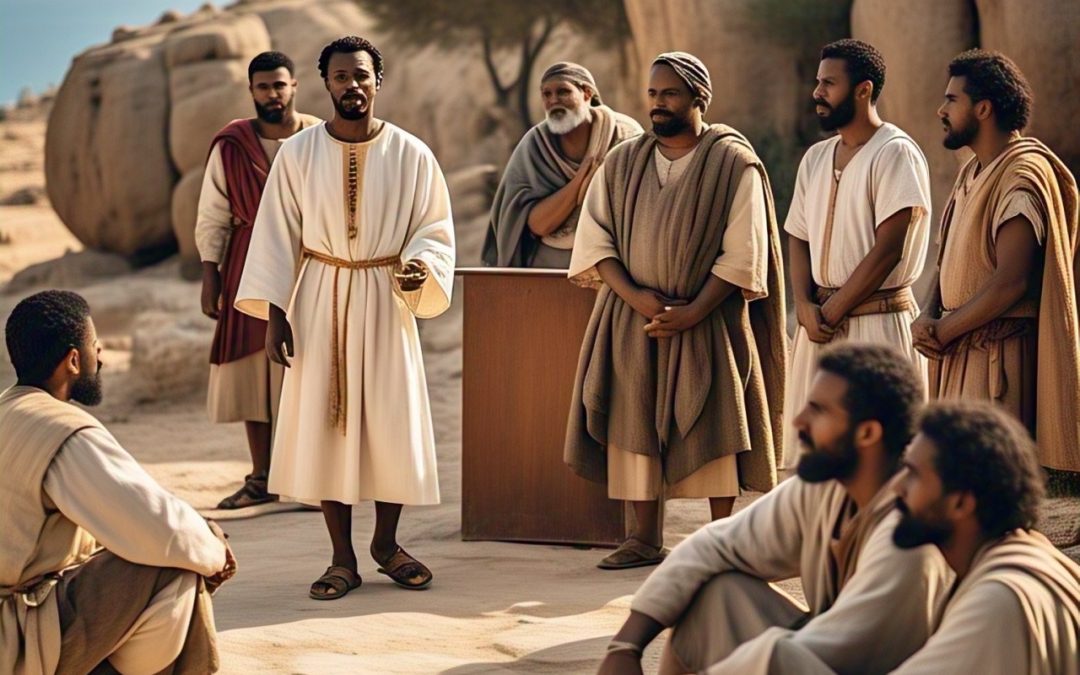Throughout Scripture, the gospel message consistently engages with fundamental questions of social organization, specifically how power is distributed, how material goods are shared, and who has access to community resources and opportunities. Far from being peripheral concerns added to a “spiritual” gospel, these social dimensions are at the very center of biblical faith from Genesis through Revelation.
The Torah establishes a social vision that systematically limits the concentration of power and wealth. Sabbath laws, Jubilee provisions, and gleaning requirements created a framework where economic exploitation was constrained and resources were periodically redistributed. These weren’t merely humanitarian additions but fundamental expressions of covenant faithfulness. To know God meant to participate in just social arrangements.
The prophetic tradition intensified this connection. Isaiah, Amos, and Micah condemned religious observance divorced from social justice. Their critique targeted specific economic and political practices: land monopolization, corruption in courts, exploitation of workers, and neglect of vulnerable populations. Their vision of restoration consistently included transformed social relations where power and resources were justly distributed.
Jesus’ ministry continued this trajectory. His proclamation of the kingdom directly addressed questions of power (challenging religious and political authorities), material goods (calling for economic sharing and criticizing wealth accumulation), and access (removing barriers that excluded marginalized groups from community participation). His table fellowship deliberately reconstructed social boundaries, creating new patterns of inclusion that challenged existing hierarchies.
The early church embodied this social vision through concrete practices, sharing possessions, crossing social boundaries, establishing new economic relationships, and creating alternative power structures. Acts describes a community where “there was not a needy person among them” (Acts 4:34), echoing Deuteronomy’s vision of a society without poverty.
What makes this biblical witness particularly powerful is its consistency across diverse historical contexts and literary genres. Whether in law codes, prophetic oracles, wisdom literature, gospel narratives, or apostolic letters, Scripture persistently engages questions of how communities should organize power, distribute goods, and structure access.
This biblical concern for social relations emerges not from external ideological frameworks imposed on the text but from theology itself, specifically, from understanding God as creator of all, redeemer of the oppressed, and sovereign over all human arrangements. The gospel is “social” not because believers add social concerns to a spiritual message, but because God’s redemptive purpose encompasses the entire fabric of human relationships.
Prayer
God of Righteous Community,
You who established covenants not merely with individual souls but with households, communities, and nations, we praise You for Your consistent concern with how we order our life together. From Sinai to Pentecost, You have revealed that knowing You means organizing our social relations according to Your justice and compassion.
Forgive us for divorcing “spiritual” concerns from questions of power, goods, and access. We confess the temptation to reduce Your gospel to private belief while leaving social arrangements unchallenged. Deliver us from false dichotomies that separate personal faith from collective responsibility.
Open our eyes to see how power operates in our communities, who holds authority and who lacks voice, whose interests are protected and whose are overlooked. Give us courage to name and challenge concentrations of power that contradict Your vision of mutual flourishing.
Transform our relationship with material goods. Free us from both consumerism that devours resources and individualism that hoards them. Guide us toward practices of simplicity, generosity, and common care that reflect Your abundance shared equitably among all Your children.
Make us advocates for access and inclusion. Where barriers of race, class, gender, ability, or nationality restrict full participation in community life, empower us to dismantle these obstacles as a fundamental expression of gospel faithfulness.
When addressing social relations brings conflict or cost, remind us that this is at the heart of Your revelation, not its periphery. May our communities become laboratories where Your justice takes tangible form, signs and foretastes of Your coming reign where all relationships will be ordered according to Your perfect love.
Through Jesus Christ, who proclaimed good news to the poor and release to the captives.
Amen.


Recent Comments